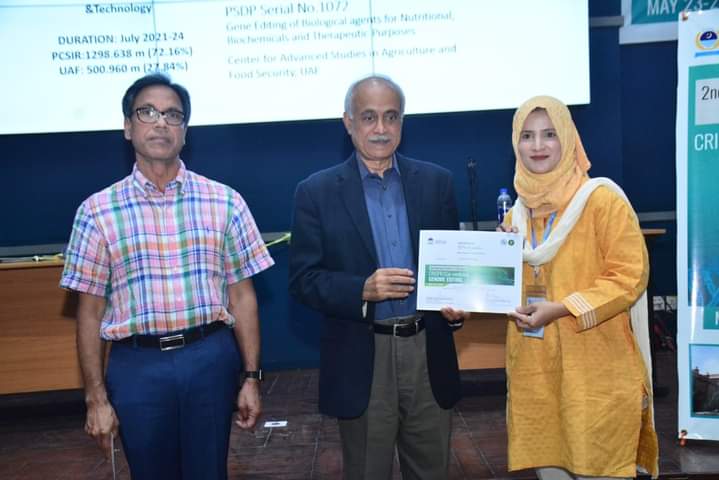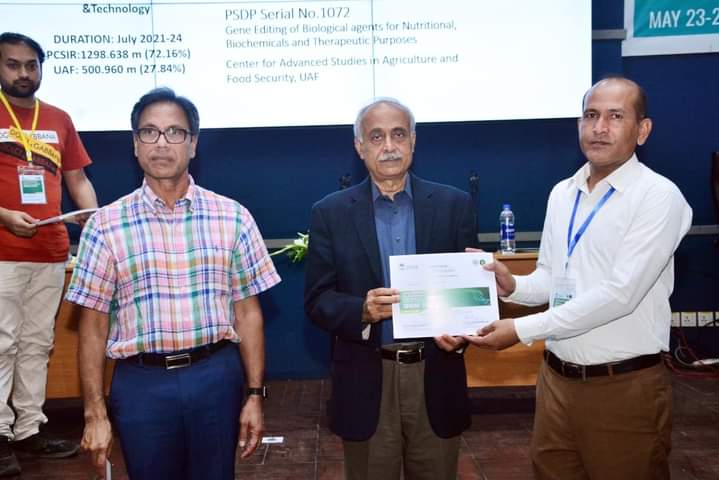Inaugural session of 2nd National Hands-on Training on “CRISPR/CAS mediated Genome Editing” is arranged by the NCGE, CAS-AFS, UAF.
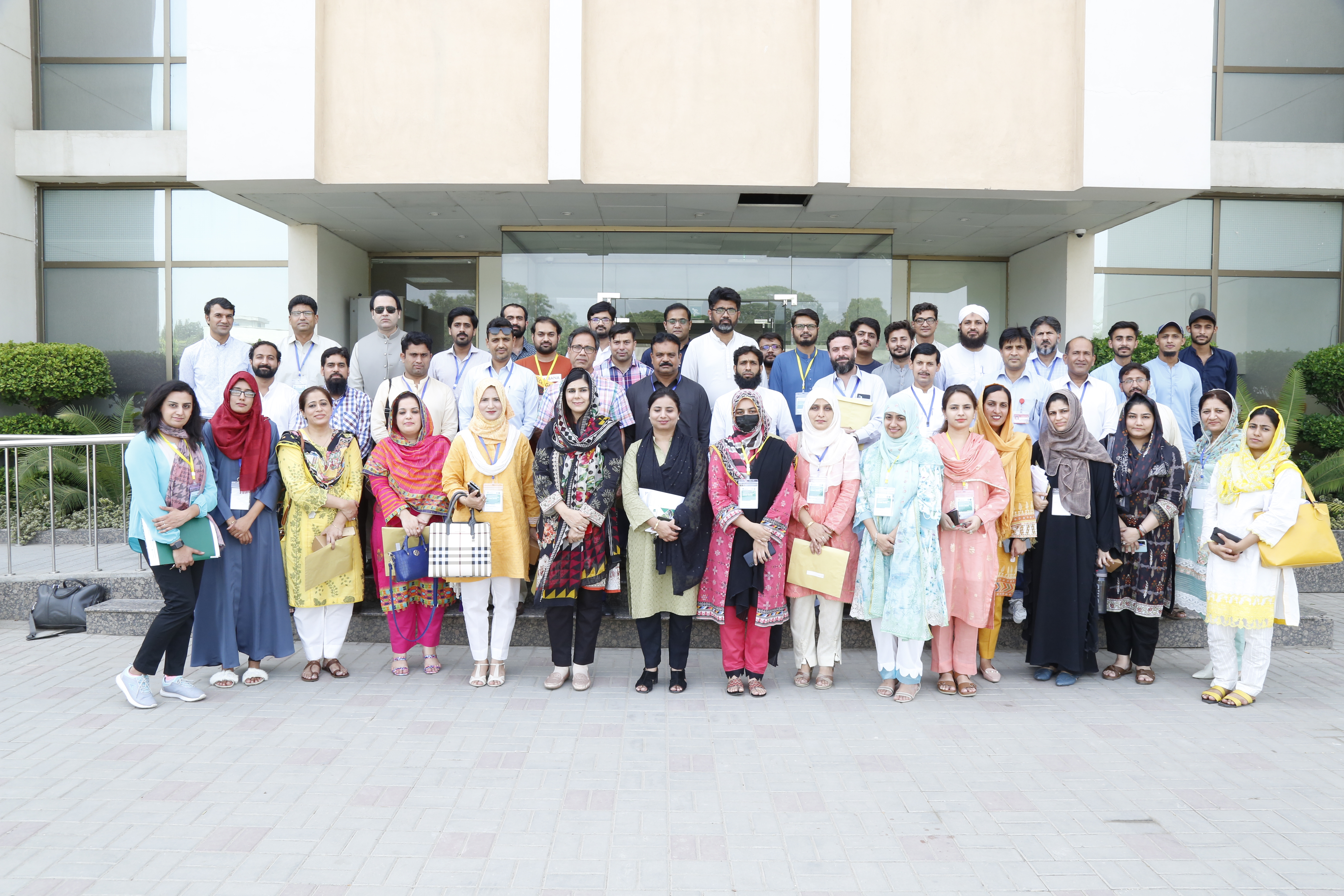
2nd National Hands-on Training on “CRISPR/CAS mediated Genome Editing”
Amid the situation of import of essential items worth billions of dollars in the country, it is a prerequisite to strengthen the agricultural sector with modern trends and scientific basis to ensure food security.
It was stated by Prof. Dr. Iqrar Ahmad Khan, Vice Chancellor, University of Agriculture Faisalabad while chairing the inaugural session of 2nd Hands-on training on CRISPR/CAS mediated genome editing arranged by the National Center for Genome Editing at the Center for Advanced Studies in Agriculture and Food Security’s Auditorium UAF.
He said that promotion of modern trends, including genome editing, is essential for achieving high yielding breeds of agriculture and livestock to improve productivity with resilient to diseases. He said that the National Center for Genome Editing has been set up at the UAF which will prove a revolutionary step towards equipping agriculture with state-of-the-art genetic facilities to multiply productivity.
Dean Faculty of Agriculture Prof. Dr. Aman Ullah Malik said that high yielding agriculture and livestock are the need of the hour for which agricultural scientists would have to expedite efforts. He said that teaching, learning and research at UAF had an excellent reputation not only at the national level but also at the international level.
Director CABB Prof. Dr. Muhammad Sarwar Khan said that the establishment of the Genome Editing Center will open up a new chapter of glory. He called for stepped up efforts for the agricultural development.Director ORIC Mr. Zahir Ahmad Zahir said that the scientists are now embarking on more ambitious adventures in genomics for agriculture development. He said that tangible research works are being carried out in UAF that will help address the issues.
Director CAS Prof. Dr. Sultan Habibullah said that the center is set up to fully exploit the potential of genome editing to address the emerging challenges of agriculture and food security. He added that they were making all out efforts to address the issue of food security.
Agricultural scientist Dr. Jibran Tahir from New Zealand said we have to ensure food security for the ever-increasing population by promoting the latest techniques. He said that genome editing offers myriad ways to tweak genomes and help scientists to fulfil what they have been wishing for since the advent of molecular biology.
Research Associate Nehal Ahmad said that the training is meant to train the young researchers to have a true experience of practicing basic techniques.
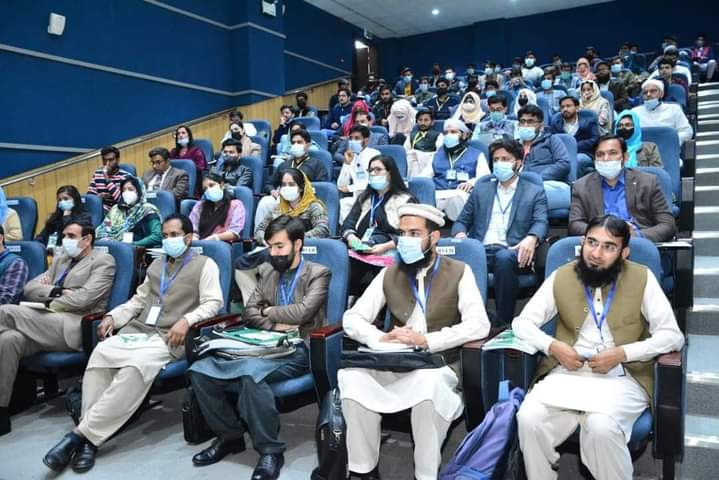
.jpeg)
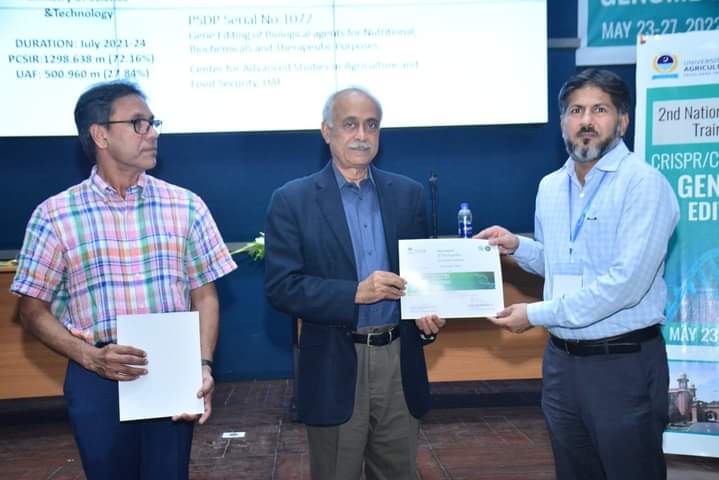
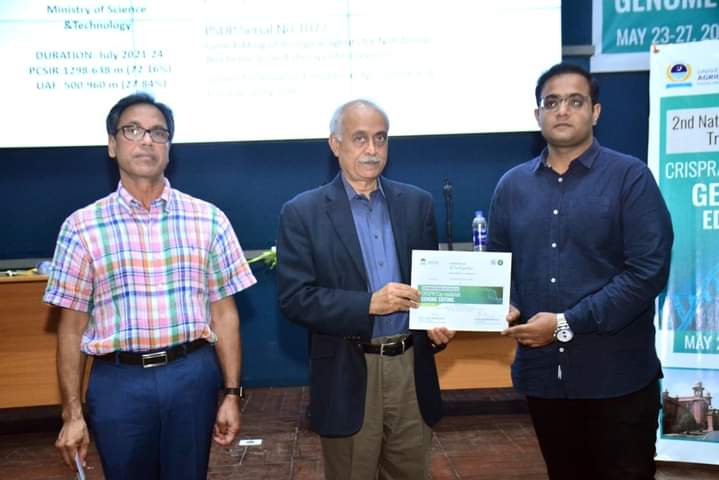
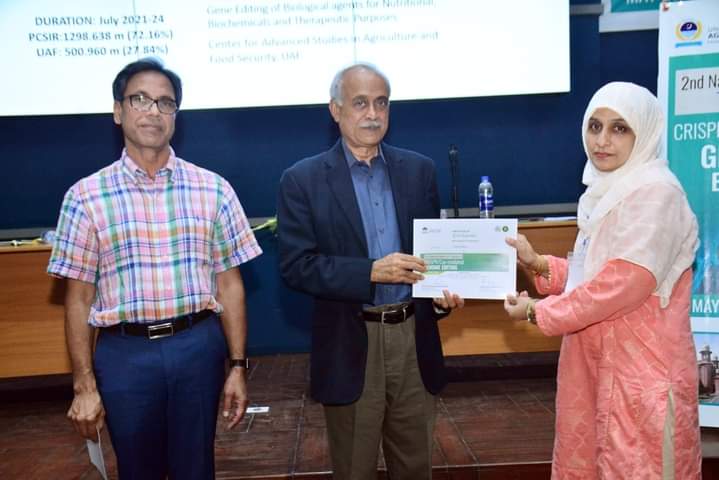
.jpeg)
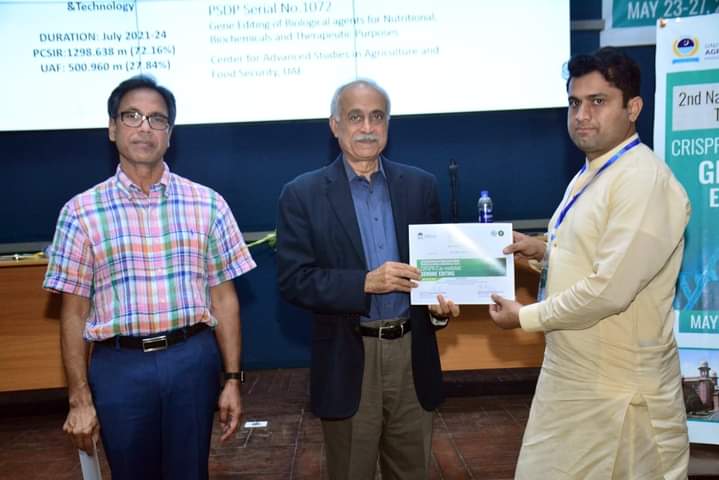
.jpeg)
.jpeg)
.jpeg)
